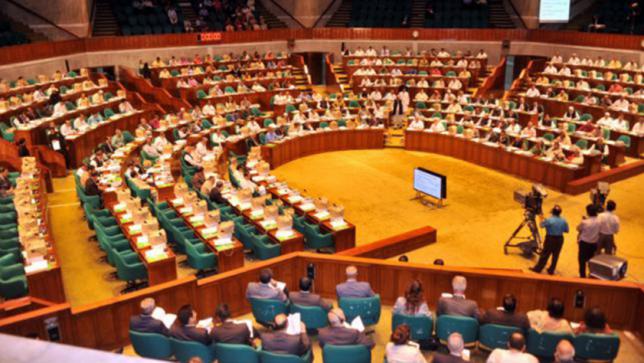On the first day of my joining the organisation where I currently work, I was briefed on its code of conduct (CoC). Human resources officials handed me a manual containing some ‘dos’ and ‘don’ts’ that an employee is expected to abide by. Such manuals are designed to safeguard an organisation against any wrongdoing or untoward incident. I was reminded of the importance of this practice after a recent parliament session in which several MPs made highly critical comments about the Appellate Division’s verdict that declared the 16th amendment of the Constitution illegal. Interestingly, the Supreme Court’s past verdicts scrapping the 5th, 7th and 13th amendments had drawn an entirely different reaction. The first two scrapped the amendments that validated all actions by the military regimes, while the last declared the provision of election-time caretaker government illegal. This time, however, the MPs were not happy and chastised the judges for a verdict that they thought was “unconstitutional” and “against the spirit of the original constitution of 1972″; some have even called it a “conspiracy”. We understand that if an MP desires, he or she can hold anyone accountable for their action. But is there any mechanism that governs the way they can do that?
In June last year, a lawmaker from Chittagong and his fellow ruling party men beat an election official at the Bashkhali Union for not complying with his instruction of appointing presiding officers as per his wish. We know quite a few lawmakers who also made headlines for the wrong reason. The importance of a code of conduct for our MPs cannot be overstated, but so far the parliament has failed to uphold its dignity by drawing up a mechanism that would govern how an MP should behave. If there was a CoC for our lawmakers, they would have thought twice before doing anything objectionable or unlawful.
Codes of conduct for lawmakers are not without precedent in history. Take, for instance, the CoC of the House of Commons of the United Kingdom. It existed over time in different forms and was finally documented in written form in June 2009 and later amended in April of 2013 and 2015. The purpose of the CoC is pretty simple: to assist all MPs in discharging their duties to the House, their constituents and the public in general. The Indian Lok Sabha has so far guided the conduct of the parliamentarians by norms, customs and conventions listed in the ‘Handbook for Members’. Although this handbook does not clearly spell out do’s and don’ts for the MPs, these customs are likely to be incorporated into a written rule book that the Narendra Modi government is working on. The Rajya Sabha, on the other hand, has a written Rules of Conduct and Parliamentary Etiquette. Interestingly, there are three instances of expulsion of Rajya Sabha members; Shri Subramanian Swamy was expelled on November 15, 1976, Dr Chhattrapal Singh Lodha was expelled on December 23, 2005, and Dr Swami Sakshi Ji Maharaj was expelled on March 21, 2006 for gross misconduct which brought the House and its members into disrepute and contravened the Code of Conduct for members of Rajya Sabha. In all cases, the Committee on Ethics investigated and recommended actions against the offender.
Among other South Asian countries, Pakistan Senate is set to implement a new CoC that will empower citizens to lodge complaints to the ethics committee against any senators for any misdeed. On January 14, 2016, the Upper House of the Senate passed the draft CoC which includes grave sentences for code offenders including suspension of House membership. In another move, Sri Lankan Parliament Speaker Karu Jayasuriya presented a draft CoC and asked for the opinions of the MPs within two weeks. Any MP found guilty of unethical behaviour will be subject to sanctions, including suspension from parliament for a specific period not exceeding the limit set by the Parliamentary Powers and Privileges Act. Bhutan kept its CoC of the National Assembly Members quite simple. Among its 14 simple clauses, two are quite interesting: a member will not operate any bank account outside Bhutan and members shall subscribe to maintaining the decorum and dignity of the House and shall desist from acts of defamation and use of physical force.
Immediately after the independence of Bangladesh, there were a number of allegations of collaborating with the Pakistan Army, corruption, abuse of power and nepotism against some members of the then constituent assembly. In order to initiate steps against them, a President Order was issued on March 23, 1972. Based on this order, 16 members were expelled from the assembly on charges of corruption on April 6, and later on September 22, 1972, 19 more members lost their assembly membership. Taking lessons from this, the treasury bench may revive a bill submitted by lawmaker Saber Hossain Chowdhury titled “Code of Conduct Act of MPs 2010” on January 14, 2010. It may be a law or a simple set of rules for the lawmakers to make them accountable for their actions. Any wrongdoing by an MP ultimately brings disgrace to the parliament, and such acts are a clear violation of the oath the lawmakers take when they are sworn in as members of the parliament.
A CoC is important not only for ensuring justice but also to establish a lawmaker’s accountability to the people and the parliament. There should also be a clear accountability system under the purview of the Ethics Committee led by the Speaker of the Parliament as its Chairman. This committee will be an addition to the already existing 51 parliamentary committees. This CoC may set out the standards of behaviour expected from lawmakers while carrying out their duties and public engagement. It may also contain rules similar to election rules issued by the Election Commission concerning the additional income, personal interests and gifts that must be declared by the lawmakers and published in the Register of Members’ Interests.
Source: The Daily Star

